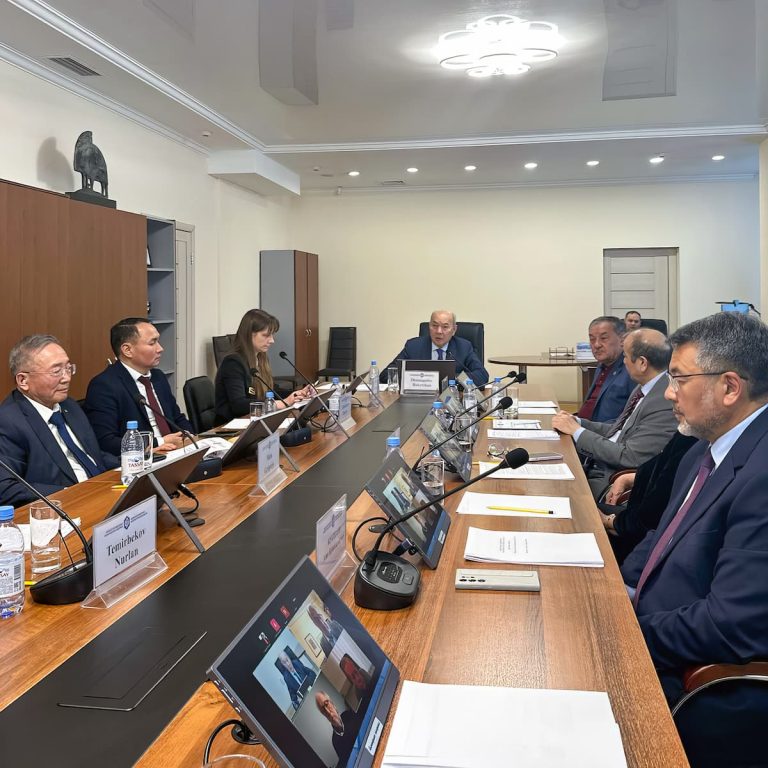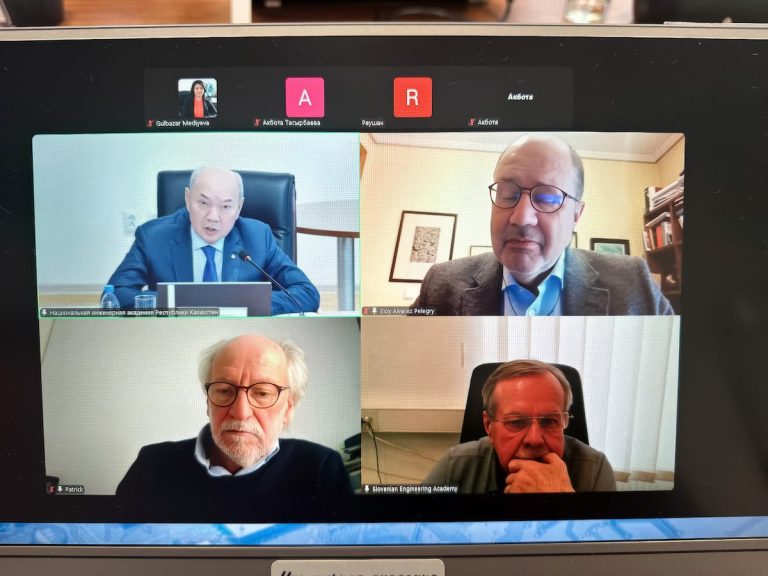Bridging Science, Industry, and International Cooperation through Engineering Leadership
The National Engineering Academy of the Republic of Kazakhstan (NEA RK) hosted the Global Engineering Development Forum, welcoming distinguished guests from the European Council of Academies of Applied Sciences, Technologies and Engineering (Euro-CASE) and leading experts from across Europe and Kazakhstan. The forum marked a strategic milestone in Kazakhstan’s engineering diplomacy, laying the foundation for enhanced international collaboration, scientific integration, and future-oriented innovation.
In his opening remarks, Bakhytzhan Zhumagulov, President of NEA RK, reflected on the Academy’s 30-year journey, emphasizing its role in linking science, education, and industry. His address underscored the importance of expanding global partnerships to tackle technological and societal challenges.
Representing Euro-CASE, Patrick Maestro, Secretary General, expressed support for NEA RK’s potential inclusion in the European network of engineering academies, reinforcing the importance of cross-border cooperation in applied sciences. Delegates from Slovenia and Spain echoed this sentiment, signaling interest in joint research, exchange programs, and knowledge transfer initiatives.


Engineering Progress Through Partnership: Local Expertise Meets Global Networks
The forum attracted a diverse and influential participant base—including division chairs from NEA RK, experts in robotics, environmental engineering, computing, and transportation, as well as government officials, industry professionals, and young researchers.
Discussions focused on:
- Joint innovation and research between Kazakhstan and European institutions;
- The strategic role of engineering in economic modernization and infrastructure development;
- The importance of nurturing the next generation of engineers through mentorship and international exposure.
Participants praised NEA RK’s leadership and scientific contributions, particularly in emerging sectors such as automation, sustainable resource use, and smart infrastructure. The forum was also commended for its inclusive approach, ensuring visibility and engagement opportunities for young professionals and early-career researchers.
The event concluded with a shared vision: to strengthen Kazakhstan’s place in the global scientific community by building bridges between academia, industry, and international networks—and to inspire engineers of all generations to lead transformational change.

